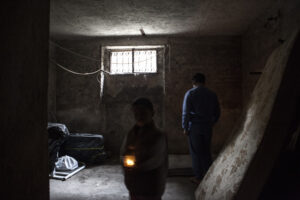Local Evictions Work
Local evictions in Milan are quite common, and it’s important to know how they work. The good news is that Milan has a lot of great landlords, and tenants rights are well protected by law. However, there are also a fair number of people who take advantage of the situation to make money.
There are a number of websites that are specifically designed to help international renters in Milan. One is Bakeca, which allows people to post small ads and connect with potential landlords. Another is Renting Milan, which has a specific international section for those looking to live in the city.

Finding a rental in Milan can be tricky, especially if you don’t speak Italian or aren’t familiar with the local market. Many of the properties are rented out through word of mouth, so you might want to get in touch with your friends and colleagues who can help you find a flat in the city.
How Do Local Evictions Work in Milan?
Some of the best areas to look for accommodation are the outer zones, where you can find cheaper rents and better transport links into the centre. These include Ponte Lambro and Vigentino in Zones 4 and 6, and Quarto Oggiaro in Zone 8.
The inner zones of the city centre, which include Porta Nuova, also offer plenty of affordable options, with a mixture of different types of accommodation available. The neighbourhood of Isola, for example, is popular with those working in the Porta Nuova business district, but it can be a little congested at times.
If you’re a student, there are also a number of flat shares that are managed by universities. This can be a great option for those on a budget, as you can share an apartment with other students without paying a high agency fee.
There are also a number of private property owners who let out their apartments, and many of these are happy to take foreigners as tenants. These can be a great way to find a home in Milan, but you should always check that the property is legal before signing a lease.
Some landlords will also charge extra for a deposit, so it’s worth checking this before agreeing to move in. Landlords will often ask for a minimum of three months’ rent up front, which should be returned to you at the end of your tenancy, less any damages.
Choosing the right place to rent in Milan is an essential part of living abroad. You should take into account your job, budget and preferences when deciding where to live.
You should also be aware of the difference between unfurnished, semi-furnished and fully furnished accommodation in Milan. For many expats, it’s preferable to choose a fully furnished property, as these tend to be much more spacious than their unfurnished counterparts.